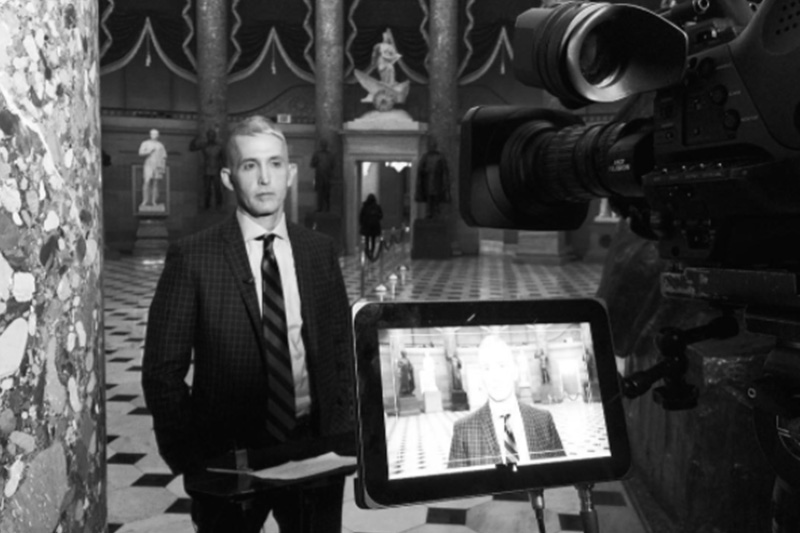Rep. Trey Gowdy (R-S.C.) discussed the earth shattering report from the New York Times concerning a memo that former FBI Director Comey drafted documenting the suggestion that President Trump made for him to drop the investigation into Mike Flynn.
Gowdy stated that a conviction against Trump is a long way from a headline by the New York Times.
“I read the story, obviously I wanna see the memo,” Gowdy said, “Obviously I want to talk to Director Comey to determine how contemporaneous his recording of the conversation was. But also importantly, not just what was said, but what did Director Comey hear. How did he take it? That can only be done, with all due respect to the New York Times that can only be done by looking at the memo and talking to Director Comey.”
“If you go back to criminal procedure,” he explained, “which is my background, there’s a doctrine called the ‘rule of completeness.’ Whenever part of a document is introduced you gotta be able to look at the entire document. Your viewers and my fellow citizens deserve to see the entire context of whatever conversation may or may not have taken place.”
“And quite frankly,” he continued, “Director Comey deserves the opportunity to come tell us how he heard it, what he heard, how pervasive it was, and how much of the conversation that segment consumed. So we have a story, there’s a reason newspaper articles are not admissible in a courtroom in the United States. I’m not knocking the reporter, the reporter does good work. But we’re a long ways from a conviction, the fact is we simply have a headline in the New York Times.”
Anchor Martha MacCallum asked Gowdy if the report would actually help promote the need of a special prosecutor to be appointed to the Russian investigation.
“I have been resistant in the past but I have been open-minded,” Gowdy answered. “Special counsel is only appropriate if there’s an allegation of a crime. And there are several crimes, potentially at play here. The hacking of the DNC is a crime, I don’t hear people talking about that much. The dissemination of classified information is a crime. General Flynn’s comments to the FBI may or may not constitute a false statement to a law enforcement official. And I’ve heard allegations that this rises to the level of obstruction of justice.”
“So you do have sufficient evidentiary basis for a crime,” he concluded, “but the other half, the other half of the equation is whether or not the Department of Justice or any of the 94 U.S. attorneys can do the job themselves, and I have not been persuaded that all 94 U.S. attorneys, in our country, many of whom are women and men who have nothing to do with politics are incapable of adjudicating this fact pattern.”
The report by the New York Times has put the White House under the spotlight, as Democrats and other critics demand investigations.
Senator Angus King (I-Maine) said that if the report was in fact true, it could lead to Trump’s impeachment. Rep. Jason Chaffetz (R-Utah), on the other hand, sent a letter to the FBI on Tuesday demanding that they hand over all communications between Comey and President Trump to the House Oversight Committee.























